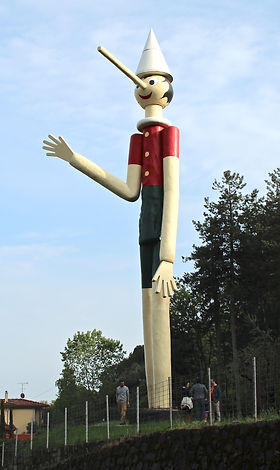




WELCOME TO An Entertainment Site for Scottish Country Dancers - Enjoy the curated selection of theme-related dances for celebrations and holidays, or find a dance associated with a special calendar day, or EVEN your own birthday!
Puppet Day
Mar 21
Other Scottish Country Dances for this Day
Today's Musings, History & Folklore
🎶"I've got no strings
To hold me down
To make me fret
Or make me frown
I had strings
But now I'm free
There are no strings on me!"
~ I've Got No Strings, 1940, Pinocchio
Puppetry is a very ancient form of theatre which was first recorded in the 5th century BC in Ancient Greece. From Punch & Judy to Kermit the Frog, puppets and puppeteers have provided entertainment and social commentary. In the 19th century, string and rod puppets, marionettes, became more complex and instead of just the rod and two strings, marionettes could be controlled by as many as eight strings, which increased control over the individual body parts of the marionette. 🎭
The Puppeteer
March 21 is Puppet Day!
One of the most famous fictional puppets is Pinocchio, the wooden puppet who turned into a real boy!
This story made famous by Disney animators was from a novel by Italian author Carlo Collodi, originally released as a serial in 1881 and 1882 and later completed as a book for children in February 1883.
It begins with the mischievous adventures of an animated marionette named Pinocchio and his father, a poor woodcarver named Geppetto.
Many concepts and situations expressed in the book have become proverbial, especially the idea of the long nose, commonly attributed to those who tell lies. The fairy in the story says that "there are the lies that have short legs, and the lies that have the long nose".
In philosophy and logic, the story of Pinocchio has given its name to the "The Pinocchio paradox" which arises when Pinocchio says "My nose grows now." This is considered a version of the liar paradox.
The liar paradox is defined in philosophy and logic as the statement "This sentence is false." Any attempts to assign a classical binary truth value to this statement lead to a contradiction, or paradox. This occurs because if the statement "This sentence is false" is true, then it is false; this would mean that it is technically true, but also that it is false, and so on without end.
Although the Pinocchio paradox belongs to the liar paradox tradition, it is a special case because it has no semantic predicates, as for example "My sentence is false" does. The Pinocchio paradox has nothing to do with Pinocchio being a known liar. If Pinocchio were to say "I am getting sick," this could be either true or false, but Pinocchio's sentence "My nose grows now" can be neither true nor false; hence this and only this sentence creates the Pinocchio (liar) paradox.
For an interesting analysis of lying in the original story, click the Pinocchio statue below.
Click the dance cribs or description below to link to a printable version of the dance!




